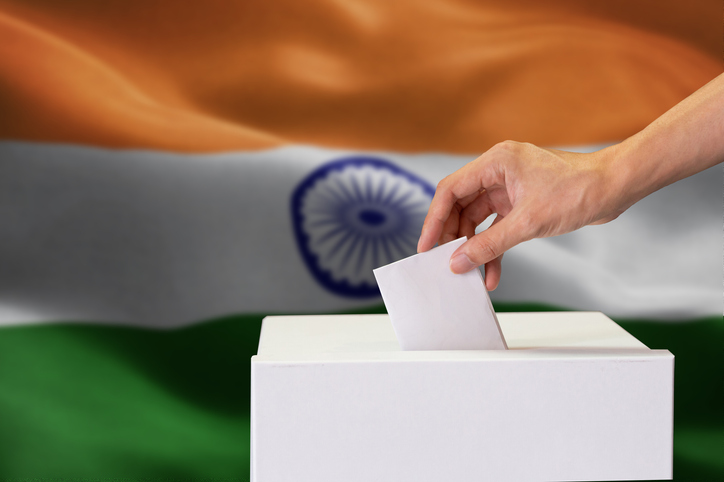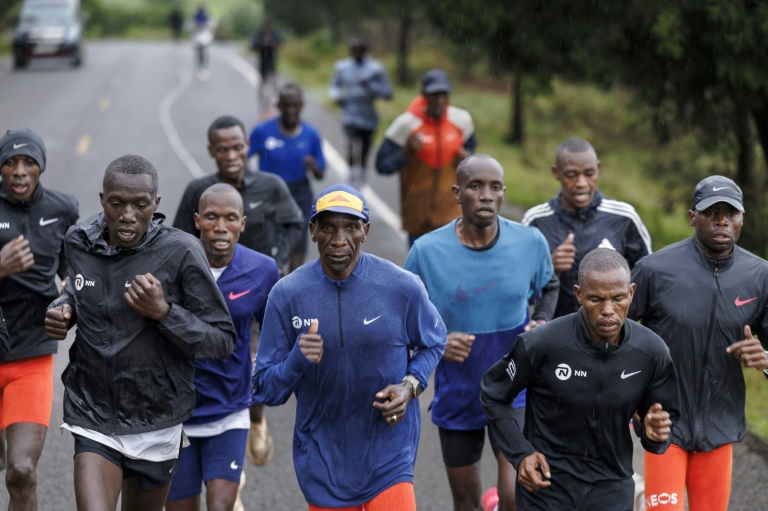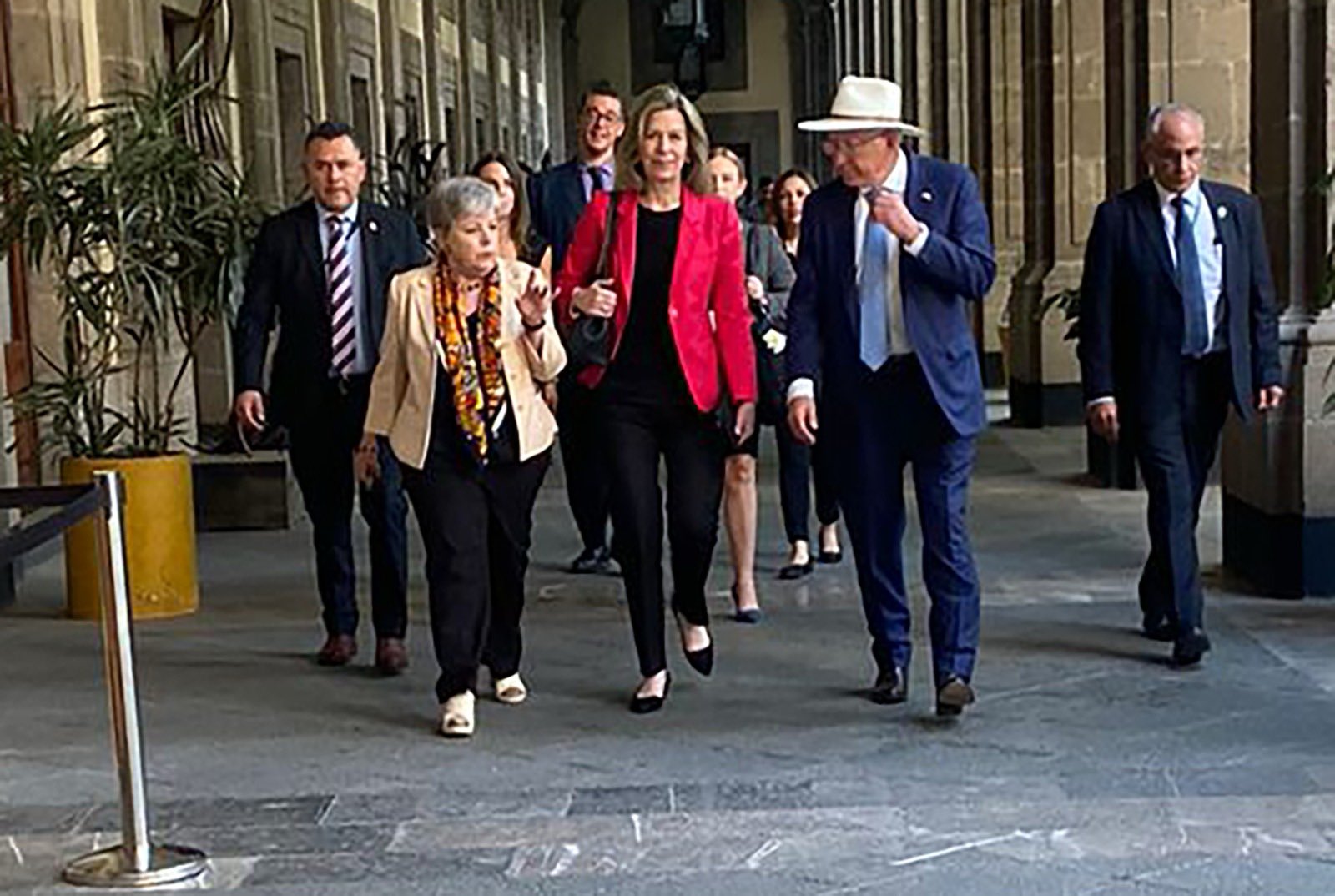
In Asian media this week: Hate speech an appeal to ‘bigoted supporters’. Plus: High-tech shake-up for China’s military; EU sings ‘old colonial song’; Bomb plot trial starts in Hong Kong; Recognition urged for Myanmar opposition; West’s chip restrictions ‘will not work’
Religious and communal tension in India have been thrust to the forefront of campaigning for the country’s national elections, with Prime Minister Narendra Modi claiming the opposition Congress party would distribute people’s property, land and gold among Muslims if it formed government.
“Congress has declared that Muslims have the first right to the country’s resources,” Modi said.
Voting in the election is being held in phases, from April 19 to June 1. Some 970 million people are eligible to vote.
The Hindu newspaper reported that Modi said Congress planned to conduct a survey to find out the property of individuals, gold owned by women, silver owned by tribal families and land and cash held by government employees. It would then redistribute it. “Can you tolerate the government snatching your hard-earned money and property,” he asked.
The Hindu condemned Modi’s speech as messaging intended to please the bigoted sections of his support base. In an editorial headed “Recourse to hate”, it said Modi’s unapologetic right-wing rhetoric was moored in demagoguery, hate speech and dog-whistles.
None of his statements about Congress was close to being accurate.
Congress has complained to the national Election Commission, which issued a notice of a breach of its Model Code of Conduct. It did not mention Modi, but documents attached to the notice included the complaint by Congress against Modi’s “malicious election speech”.
Modi’s speeches were divisive and hateful, ucanews.com, the Asian Catholic news site, said in a commentary. It said Modi made apparent references to Muslims as “infiltrators” who “have many children”.
It quoted the Election Commission as saying “star campaigners” were expected to contribute to a higher quality of discourse.
Modi, however, stepped up his attack on Congress and its supposed redistribution plans.
The party’s plans amounted to a dangerous game, he said.
The Hindu reported three speeches Modi gave on Wednesday. There were many references to alleged Congress plans to favour multiple minority groups.
While people were alive, Modi said, Congress wanted to survey people’s wealth and give it away. “And when you die, they want to deprive you of the right to leave your assets behind to future generations,” he said.
PLA to have ‘four forces and four arms’
The People’s Liberation Army has embarked on what is being called the biggest reorganisation of China’s military since 2015. The PLA’s Strategic Support Force, created eight years ago, would be scrapped and replaced by separate information, aerospace and cyber units.
A long analysis in the Asian news site, The Diplomat, said the moves were more than just a change of names.
“This restructuring aims to enhance the PLA’s capabilities in an era increasingly defined by information warfare and cyber operations,” the analysis said.
The article, by defence experts Ying Yu Lin and Tzu-Hao Liao, said the functions of the old Strategic Support Force would be replaced by an Aerospace Force, a Cyberspace Force and an Information Support Force. These units would work with the existing Joint Logistics Support Force.
The PLA’s structure would now be four services (Army, Navy, Air Force and Rocket Force) and four arms (Aerospace, Cyberspace, Information and Joint Logistics).
The writers said Strategic Support Force had been thinly spread over a wide range of responsibilities, with individual units vying for resources.
They said the new structure may have been influenced by the US command system and possibly also by Russia’s military organisation.
“This strategic realignment suggests a concerted effort to enhance the PLA’s operational effectiveness and adaptability in the face of evolving threats and challenges,” the article said.
Europe out of touch with non-Western world
Two senior representatives of the EU this month wrote a piece for The Jakarta Post, saying they believed EU-Indonesia relations needed a new dynamic.
The article, by EU foreign affairs officers David McAllister and Daniel Caspary, presented an orthodox Western view of the world, saying member-states stood for peace, freedom, democracy and the rule of law. Ukraine was resisting Russia’s illegal war of aggression; Hamas was guilty of a savage terror attack, they said.
Had they been speaking at a conference, we would have noted they had failed to read the room.
Historian Marjolein van Pagee, whose field is the Dutch colonial occupation of Indonesia, hit back in an OpEd piece, in the same newspaper.
“What they offered was nothing new, but the same old colonial song,” she wrote.
“By calling on Indonesia to support their so-called ‘international rules-based order’, it seems they have completely lost touch with reality.
“Most non-Western countries understand that this particular world order is not the neutral, internationally supported, democratic, peace-loving order that Westerners say it represents…
“Old colonial Europe is becoming more and more isolated, both politically and ideologically. For the rest of the world, it has become obvious that Europe, the United States and its allies are the actual warmongers.”
Most people in Indonesia sided with Russia in the Ukraine war, she wrote. Referring to the conflict as an illegal act of aggression would fall on deaf ears, as would calling October 7 the “savage terror attack by Hamas”.
“I strongly believe the old colonial order never fell and is still trying to hold the world in its grip,” she said. “In the coming multipolar world, the old powers are losing their influence and credibility.”
Prosecutor alleges thwarted plan targeted police and civilians
In December, 2019 – during Hong Kong’s tumultuous anti-government protests – a group planned to explode two bombs in the Wan Chai business centre. This is the key allegation in an anti-terrorism trial that began this week.
The prosecution alleges a thwarted bomb plot targeting police and civilians would have used two devices containing a total 10kg of explosives. The second bomb, containing 8kg of explosives and about 150 nails, would have produced a blast radius of 400 metres.
South China Morning Post reported that six defendants were charged with conspiracy to commit the bombing, while a seventh was also charged with conspiracy to provide or collect property to commit terrorist acts. The trial is taking place in the High Court.
Prosecutor Juliana Chow Hoi-ling said the group had received military-style training in Taiwan and had tested firearms in a Hong Kong suburb before the date of the planning attack.
Chow also told the court two member of the group stole chemicals from a university laboratory to make explosives.
The seven people charged with the plot have denied the allegations, pleading not guilty.
The paper said the prosecution would call 133 witnesses, including three people who had already pleaded guilty to the same offence. The trial would last for 60 days.
Australia and the West should do more to isolate junta
As recognition of Palestine is being debated in Australia, there is a country closer to home where a change in official recognition could help end a long-running, brutal repression of its people. That country is Myanmar.
Author and human rights journalist Simone Galimberti writes it is tempting to believe the Tatmadaw (Myanmar’s military) might not be able to withstand the growing resistance to the junta’s rule. But that would imply continuation of an extremely bloody conflict.
What is really desirable, he writes in The Jakarta Post, is recognition of the opposition National Unity Government as the only official representative of Myanmar.
“It is still inexplicable to me how the West has not yet made such a move,” Galimberti says. “We should not hesitate to condemn the West, primarily the United States and the European Union, together with Canada and Australia, for not doing enough to isolate the junta.”
Galimberti is also critical of China and ASEAN for their lack of ambition in trying to resolve Myanmar’s conflict. South China Morning Post columnist Alex Lo says ASEAN’s failure to get involved with Myanmar, its most unstable member state, is a huge black mark on its record.
“The bloc is consistently being pointed to by critics as being no more than a talking shop,” he says.
But The Jakarta Post reports that Thailand has proposed to Laos, the ASEAN chair, that it hold a meeting of key ASEAN countries aimed at resolving the crisis in Myanmar.
Thailand specifically mentioned Indonesia and Malaysia as participants but said any ASEAN country could join.
The Post has also reported that a Myanmar resistance group, the Karen National Union, has made what it calls a temporary retreat from Myawaddy, a town on the border with Thailand that rebel forces took earlier this month.
Bangkok Post says the Thai Government has prepared plans for handling security on the border with Myanmar, including helping refugees.
Batik art and computers chips are linked
Throughout east and south Asia, people produce elaborately designed textiles through a process that involves covering cloth with wax and printing a pattern with a hot copper block that melts the wax beneath it. When the cloth is put in a vat of dye, only parts where the wax has melted accept the colouring. The process is repeated with different designs and dyes.
Andrew Sheng, in a column published by the South China Morning Post, makes a connection between the world’s best chip manufacturers – Japan, Taiwan, South Korea and mainland China – and their long traditions of wax tie-and-dye textiles, demanding great attention to detail.
“The best semiconductor chips demand the finest workmanship and dedicated human engineering, as well as clustering or collective social groupings,” he writes. “The same passion that produced the best batik or ikat textiles for centuries is producing the best semiconductor chips today.”
Sheng, an economist who writes on global issues from an Asian perspective, says it does not matter that the best integrated circuit designs are from the US. These designs can be engineered in Asia, a tribute to Asian craftsmanship.
This leads to his broader economic and political point. It suggests, he says, that the global supply chain of design, fabrication and testing of chips will not decouple due to such pressures as geopolitical sanctions.
“The poor do not stay poor forever,” he writes. “And knowledge cannot be contained or confined to a few.
“I am increasingly confident that the rest of the world will break out of their tech containment by an increasing insecure West weaponising everything from artificial intelligence to chips.”





